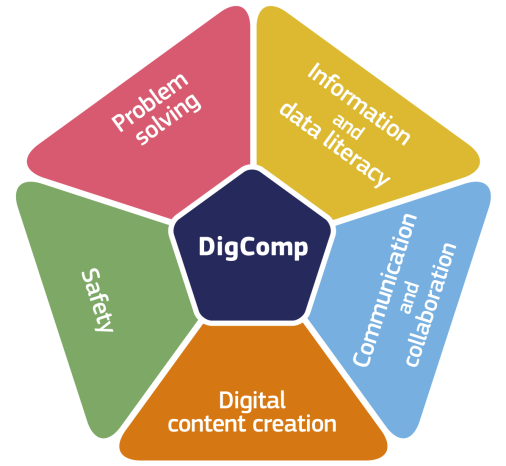Project presentation
The facts
Children are being equipped with a personal digital device at an increasingly early age. In Europe, 35% of young people aged between 9 and 11 connect to the internet every day using a smartphone. This rate rises to 56% in Lithuania (Source: EU Kids Online 2020).
In France, children are, on average, 7 years old when they acquire their first tablet and 10 years old for their first smartphone. (Source: Parenting in the digital age OPEN/UNAF 2020).

These young people have an essentially recreational use of their digital tools: while they spend a lot of time watching videos on their smartphones, they maintain social links by playing online or communicating on social networks.
When confronted with inappropriate or violent content, 55% of young children say they know how to react in such situations either by:
- Taking individual action. 36% may simply close the application or block the person concerned (34%) or do nothing and hope the situation settles down (36%).
- Notifying a resource person. Parents (40% of respondents) or friends (50% of cases).
Many had also been victims of online violence or confronted with inappropriate content.
At the end of the day, while 80% of children aged 9/11 say they are doing well in their digital lives, 51% find it easier to be themselves online (69% in Lithuania). 38% compartmentalise different spaces and don't talk about the same things online and face-to-face.
There is therefore a difficulty in the appropriation and daily management of digital tools in the lives of children and pre-adolescents, due to a lack of support from adults, either in their school life (by teachers at school) or in their family life (by their parents).
Proposal
An effort must be made to acquire digital skills beyond the simple use of tools that young people master very well most of the time and more on informal and non-formal skills of behaviour in these (digital) spaces of life.
The European Union has been working since 2013 on a common digital skills development programme The Digital Competence Framework for Citizens (DigComp). It serves as the basis for all school curricula in EU countries. But what is really happening to young people's acquisition of key skills in digital uses and their genuine management of these uses?
RESOLAB is proposing a new methodology for studying and understanding children's actual digital practices, getting them to test their first uses in a safe and secure digital environment, and then making them aware of the issues involved in this digital life by involving teachers and parents. This methodology, which has been tried and tested in 4 European countries with widely differing practices among young people, will help them to develop their digital skills by drawing on the DigComp reference framework.

Objectives
The aim of the project is to develop digital resources tailored to children, teachers and families in order to promote digital skills in line with the European DigComp framework.
To achieve this, 3 STRATEGIC OBJECTIVES corresponding to the 3 audiences concerned by this scheme are set out:
- Train children in the use of digital devices through experimentation.
- Provide teachers with tools to work with DigComp in the classroom.
- Provide families with resources to develop digital skills at home.
Concretely, we will culminate in the creation of an online space for children to build up their digital skills through experimentation: a European social network-type platform accessible only to pupils in each class to test online sociability.
The construction of this tool will be based on a survey and focus groups in order to understand children's actual uses.
Then, we will develop real-life scenarios such as children may experience on the digital, allowing us to address the skills related to DigComp.
At the same time, we are going to survey and discuss with teachers in order, on the one hand, to gain an overall view of their representations of pupils' digital practices, and on the other, to understand the obstacles or strong points for applying the digital skills to be taught as part of the school curriculum.
Finally, to provide comprehensive support, it is vital to involve parents, who will play an important role in this scheme. In concrete terms, we're going to offer them a logbook to understand the sticking points and facilitating elements within the family. We'll also be looking at how families perceive their children's digital practices, using a questionnaire.
.All this will enable us to develop a forum theatre that will bring together all these audiences in order to take into account all the parameters to best support children as part of the DigComp programme. An online guide for each of these audiences will complete the scheme.
In addition, we want to support teachers, headteachers and other teaching professions by enabling them to understand real-life usage in order to support them while offering them a tool to apply the school curriculum.
We are including parents in this area, as they are a major player in helping their children to develop their skills.

